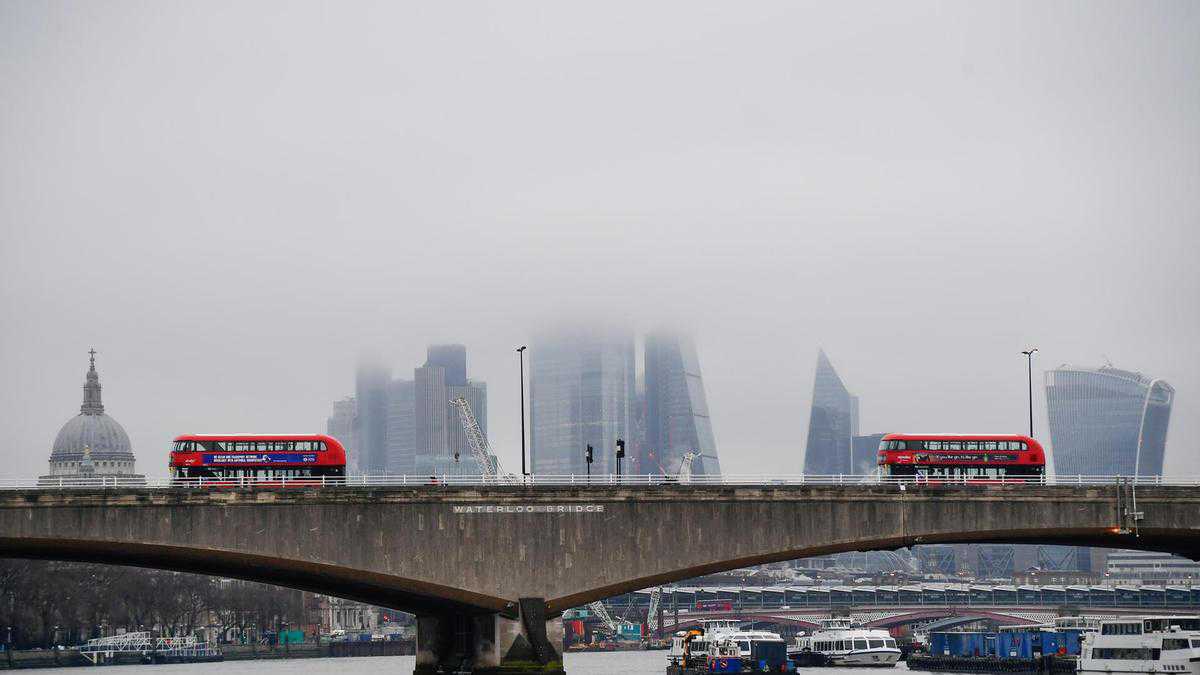Britain’s economy shrank 2.6% during November lockdown
17 January, 2021

Britain’s economy contracted 2.6 % in November when new lockdown restrictions in England made to curb the escalating Covid-19 cases dampened business activity.
The fall in gross domestic product was the first dip in output since April when the united states was undergoing a stricter lockdown, based on the Office for National Figures.
UK Financing Minister Rishi Sunak said the numbers inform you “things are certain to get harder before they progress”.
“Today’s numbers highlight the scale of the task we deal with,” he said. “But there are causes to get hopeful - our vaccine roll-out is very well under way and through our Plan for Careers we’re creating new possibilities for those most in need.”
THE LENDER of England estimates Britain's economy shrank by a lot more than 1 per cent through the final 90 days of 2020, and with a fresh lockdown set up since early January the country is likely to have fallen right into a double-dip recession - the first because the 1970s.
The central bank boosted its stimulus package to almost £900 billion ($1.229 trillion) on November to greatly help businesses survive England’s second lockdown. BoE governor Andrew Bailey explained previous this week that it had been too soon to learn if extra stimulus will be wanted.
November’s GDP contraction was much less severe than analysts possessed forecast, indicating that the market has built up most immunity to lockdowns with buyers adapting better to restrictions.
“November’s second lockdown was much less painful for the market than the primary with GDP falling to 'just' 8.6 % below the pre-crisis peak,” said Paul Dales, chief UK economist at Capital Economics.
“That comes even close to the 18.8 % month-on-month decline to 25.8 % below the pre-crisis level through the primary lockdown in April 2020.”
A potentially larger hit to financial output is coming this month with academic institutions and all non-essential retailers closed, which has kept up strain on the government and BoE to accomplish more to protect persons unable to work.
Manufacturing and development were the most insulated from the November lockdown with output rising 0.7 % and 1.9 % respectively, because those sectors were exempt from the lockdown.
“Manufacturing may also have benefitted from some activity appearing brought forward before Brexit,” Mr Dales said.
However, the companies sector was the key drag in output with restaurants, coffee shops, gyms and wild hair and beauty salons almost all closing, resulting in a 3.4 % contraction in November, a less severe result compared to the 17 per cent fall in April. Accommodation and food took the hardest strike with a 44 per cent slump, while arts and entertainment dropped 14 %.
Meanwhile, education output dipped only one 1.3 % as universities stayed open in November, leaving overall products and services output 10 % below pre-crisis levels.
Darren Morgan, director for economical statistics at the ONS, said pubs and hairdressers were the virtually all damaged by the closures, even though many additional businesses adjusted to "innovative working conditions", including the usage of click and collect.
November's better-than-expected fall found in output means the economy may avoid a good double-dip recession found in the fourth quarter, according for some analysts, and actually grow unless December’s studying shows a decline of just one 1 per cent or more.
Mr Dales said the economy’s increasing immunity to lockdowns is encouraging and implies that vaccines may allow it to return to its pre-crisis peak sooner than forecast.
Even so, Richard Pearson, director at expenditure system EQi, said a highway to restoration will be fraught with issues.
"With the market in dire straits, bad bank rates aren't off the table - so anyone saving meant for the long term should think about if their deposits could possibly be better served from dismal bank costs," he said.
Source: www.thenationalnews.com
TAG(s):
